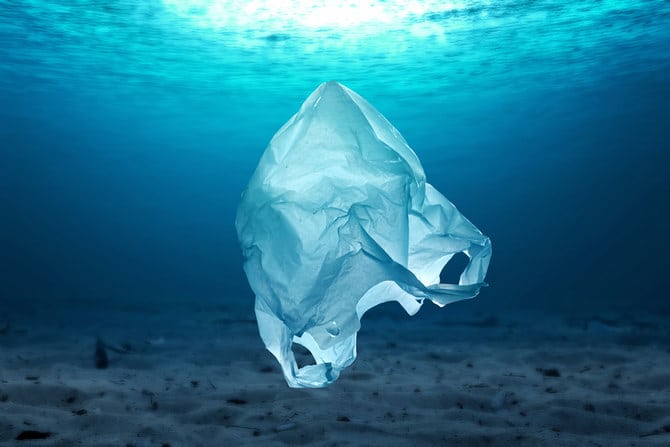
1. Aboitiz Group Joins Global Effort to #BeatPlasticPollution
To celebrate the United Nations (UN) World Environment Day on June 5, the Aboitiz Group demonstrated their commitment to global sustainability efforts by highlighting their groundbreaking innovations in accordance with this year’s theme of #BeatPlasticPollution. Most notably, they shifted towards a circular economy. A shift wherein according to the UN Environment Programme (UNEP), can decrease the inflow of plastics into the ocean by more than 80 percent by 2040, decrease greenhouse gas emissions by 25 percent, and even generate 700,000 job opportunities.
Their sustainability achievements also work towards the worldwide sustainable development agenda, aligning with the UN Sustainable Development Goals (SDGs), particularly SDG 12 (Responsible Consumption and Production), SDG 13 (Climate Action), SDG 14 (Life Below Water), and SDG 15 (Life on Land). They aim to accelerate progress and inspire others to take bold steps in combating plastic pollution.
Thank you for your generous gift that will help us continue the production of this weekly, free publication

2. World Oceans Day: Safeguarding Oceans and Marine Life for a Sustainable Future
The weeks marks the United Nations’ Sustainable Development Goal 14 (SDG14), Life Below Water Conference, which aims to eliminate marine pollution and overfishing, including a target to reduce all marine pollution by 2025.
While so very critical, this is the least funded among all SDGs, and some of its targets are behind schedule. Failing to achieve SDG14 by 2030 would jeopardize not only the oceans but also food supplies, livelihoods, and economic progress. World Oceans Day emphasizes the need for interdisciplinary collaboration and collective action to ensure effective ocean conservation.
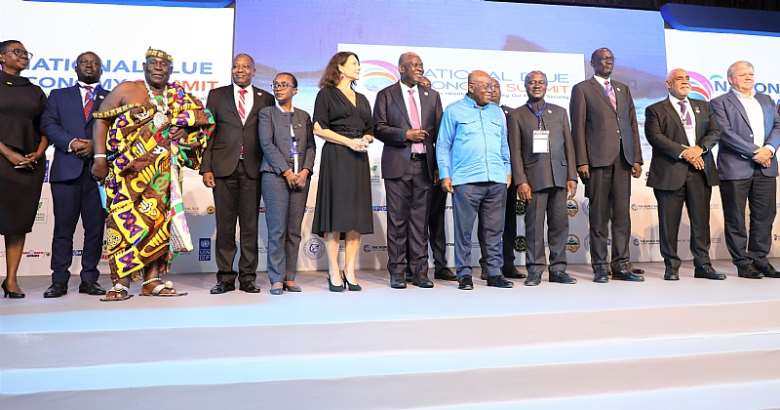
3. Ghana Blue Economy Summit Reaffirms Country’s Commitment to Ocean Conservation
Ghana reaffirmed its commitment to protecting the ocean and achieving Sustainable Development Goal 14 for ocean conservation at the National Blue Economy Summit held in Accra. The two-day summit, a collaboration between the United Nations and Ghanaian government agencies, focused on mobilizing actions for sustainable ocean management under the theme ‘Our Ocean’s Heath, Our Prosperity, Our Planet’s Security.’
President Nana Addo Dankwa Akufo-Addo proposed five agenda points, including the prioritization of robust regulations to prevent overfishing, fostering strategic partnerships, increasing investments in ocean management, promoting research and innovation, and encouraging international collaborations. The summit also addressed pressing issues such as plastic pollution, highlighting the importance of behavioral change, individual actions, and entrepreneurial solutions.
The resulting document, known as Blue Outcomes 2023, outlines the vision for ocean safeguarding, coastal habitat conservation, climate integration, and the adoption of science and technology in ocean governance.
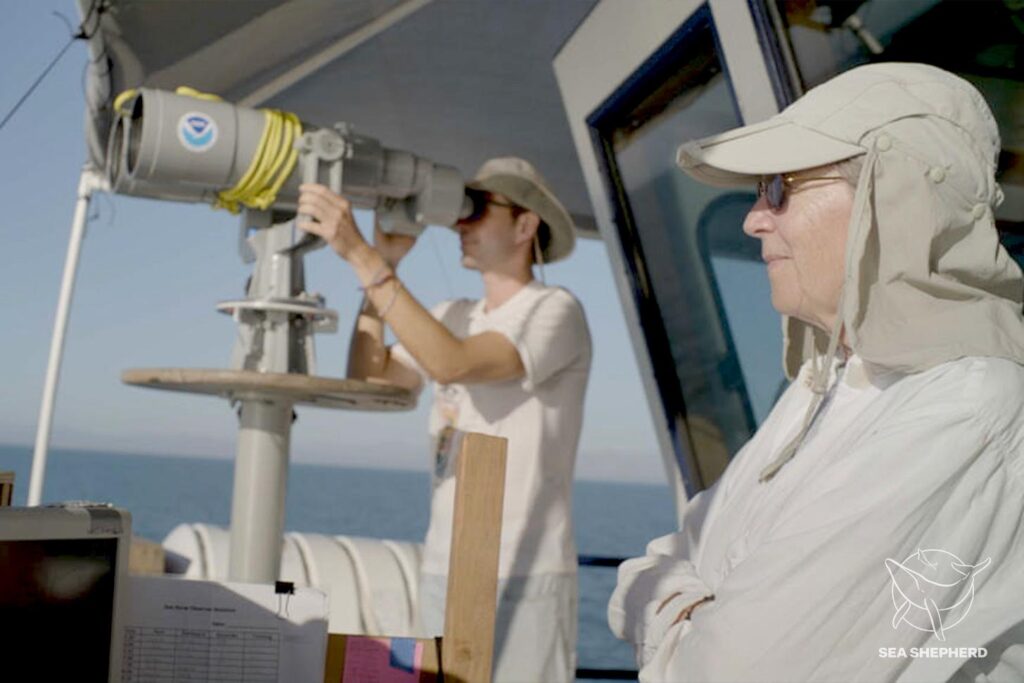
4. Study Reveals Vaquita Population Relatively Stable, Continued Protection Efforts Needed
Vaquita porpoises, recognized as the world’s most endangered marine mammals, have witnessed a continuous decline in recent decades. However, a survey conducted in Mexico’s upper Gulf of California reveals that the vaquita population has remained relatively stable over the past five years. Experts estimate the presence of 10-13 vaquitas, including at least one calf, consistent with previous estimates in 2019 and 2021.
Considering the vaquita population’s drastic decline from around 600 in 1997, these numbers offer some optimism amidst the ongoing decline. The foremost threat to vaquita populations persists in gill net fishing and insufficient regulation enforcement. Experts caution that even in gill net-free habitats, the species’ slow population growth rate means it could take approximately 50 years to recover to levels observed 15 years ago. Therefore, concerted efforts to protect and preserve vaquita porpoises remain essential for their long-term survival.
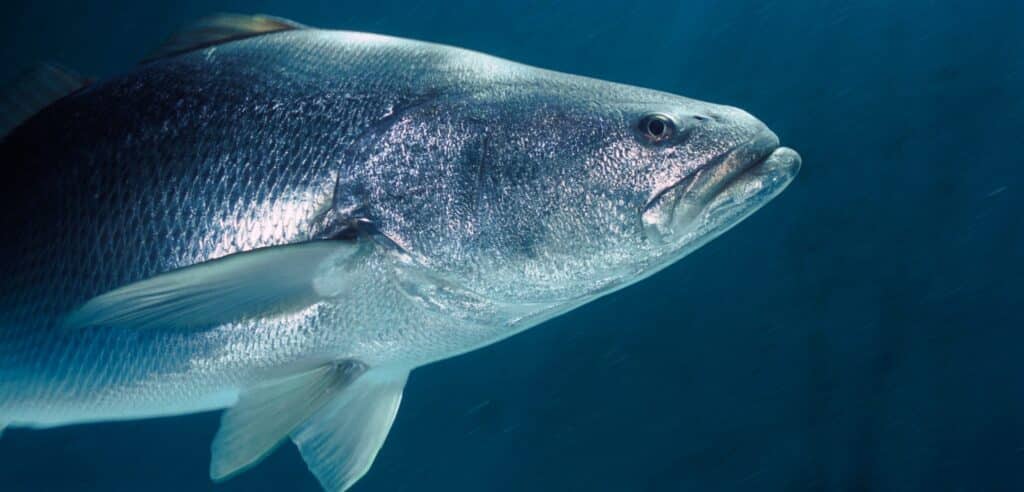
5. Offshore Aquaculture Operation Releases 35,000 Endangered Totoaba in Mexico for Ongoing Repopulation Effort
Populations of the endangered totoaba fish have experienced a significant decline due to overfishing and habitat degradation. However, Earth Ocean Farms (EOF), a fish farming operation based in La Paz, Mexico, is taking action to address this issue. On June 12, EOF released 35,000 juvenile totoaba fish into the Sea of Cortez, marking the eighth release in their ongoing efforts to repopulate the species.
Over nine years, more than 210,000 juveniles have been released as part of EOF’s commitment to conserve and protect totoaba through sustainable aquaculture practices. Collaborating with NGOs, conservation organizations, and government authorities, this initiative is making strides towards the ecological recovery of the area. EOF also aims to involve local communities and promote awareness of marine conservation for future generations. The collective efforts of various organizations highlight a shared commitment to safeguard the region’s endangered species.
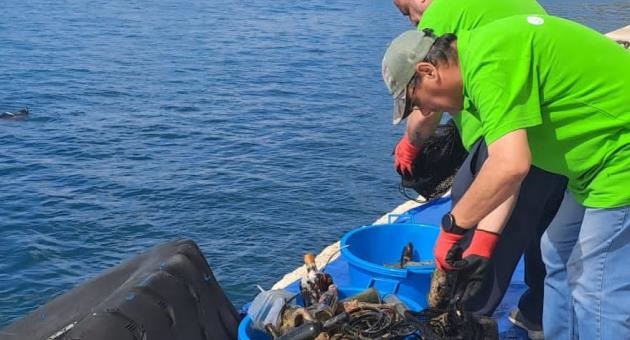
6. Marine Clean-Up Effort in Malta Removes 1.5 Tons of Debris from Coast
In observance of World Oceans Day, environmental organizations in Malta organized a marine clean-up effort with support from Transport Malta on June 8. The clean-up aimed to reduce marine pollution in harbors where it is more prevalent, and to further enhance the conservation of marine habitats beyond marine protected areas (MPAs). The team collected approximately 1.5 tons of marine debris, primarily metal and rubber objects.
Ambient Malta, the main organizer, has been actively conducting routine clean-up efforts since 2000, resulting in the collection of around 4 tons of marine debris from Malta’s MPAs. Ambient aims to raise awareness among the general public about the importance of avoiding littering, actively participating in removing marine debris, and reporting incidents of marine life entanglement in plastic or fishing gear. The group also calls for collaboration among private volunteer organizations and local councils to strengthen coastal protection measures.
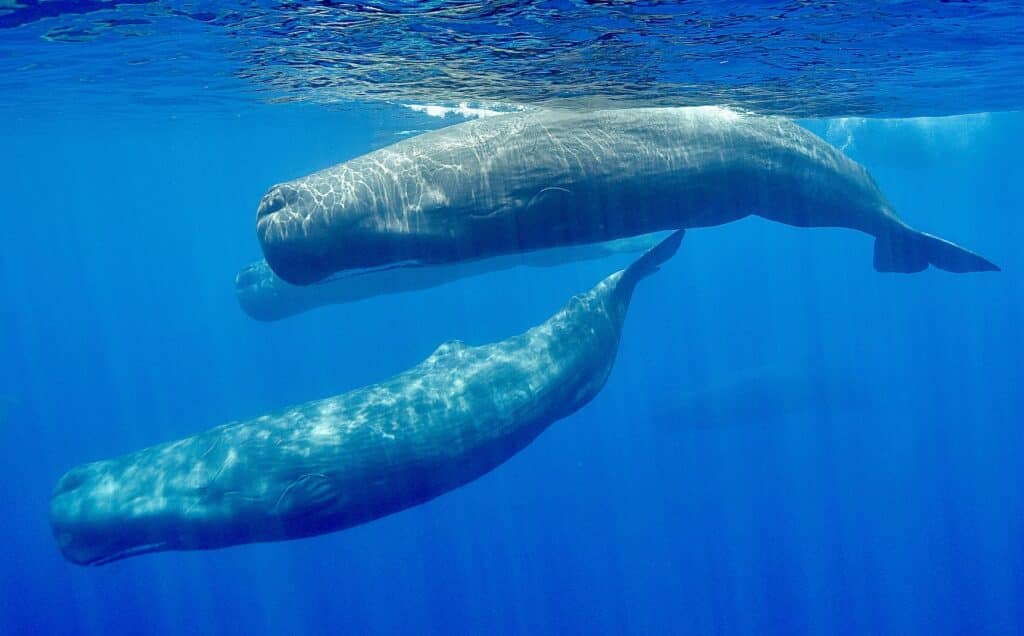
7. DFDS Plans Re-routing To Protect Endangered Sperm Whales
A major Danish shipping company called DFDS has decided to alter its routes and slow its speed to reduce the risk of collisions with sperm whales in the Eastern Mediterranean Sea, especially in the Hellenic Trench which is a key habitat for protected and endangered cetacean species. It is estimated that there are now only 200 sperm whales remaining in this area, classifying the population as endangered.
This commitment by DFDS, coupled with the re-routing measures implemented by other shipping companies working with the coalition, will result in the total collision risk to sperm whales in the Hellenic Trench being cut by an estimated 27%. “Sperm whale numbers have been on a worrying decline for some time. By making these small but important changes, a brighter future for them lies ahead,” said Sharon Livermore, Director of Marine Conservation at the International Fund for Animal Welfare.
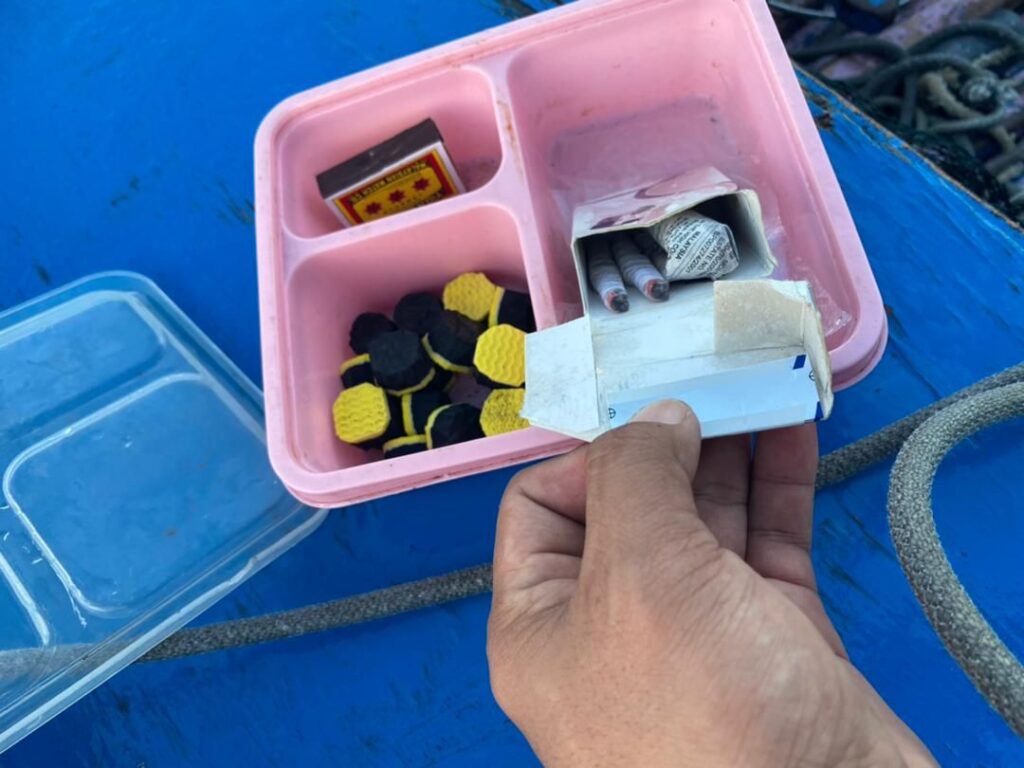
8. Bomb Detection Devices Help Conservationists Curb Fish Bombing in Semporna
KOTA KINABALU: Fish bombing activities in one of Sabah’s diving havens of Semporna have reduced significantly over the past three years, thanks to real-time bomb-detecting devices. Marine conservationist Terence Lim from the Stop Fish Bombing Malaysia non-governmental organization said this device was put to use in Semporna in 2020, and it has since reduced the number of cases by about 80%.
He said when the device detects an explosion underwater, it would send an alert to the NGO database and they would immediately share the information including the Global Positioning System (GPS) location to the authorities. Enforcement officials including the marine and the Eastern Sabah Security Command respond almost immediately, which has helped in arresting suspects and reducing the number of cases. Lim said the cooperation between the NGO and enforcement agencies as well as local communities help make this a successful effort.
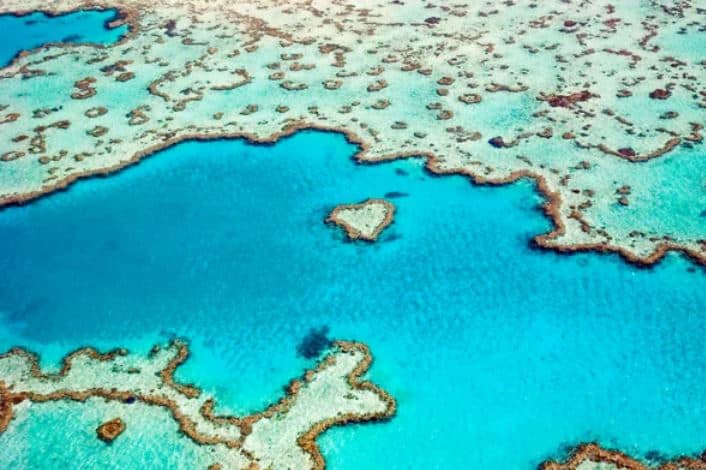
9. Inside Australia’s Plan to Save the Great Barrier Reef
Last week the Australian government agreed to establish new policies to protect the Great Barrier Reef, after over a decade of campaigning from UNESCO’s World Heritage Marine Program. Among other things, UNESCO (the United Nations Educational, Scientific and Cultural Organization) recognizes the most significant natural and cultural locations as World Heritage sites. Its World Heritage Marine Program includes 50 protected ocean sites across 37 countries.
The Great Barrier Reef, the largest and most diverse coral reef ecosystem in the world, is one of them. But it’s threatened by rising ocean temperatures, poor water quality, and pollution from agricultural operations, among other impacts. The new measures will include a ban on some of the more destructive methods of fishing, compliance incentives for farmers to prevent synthetic fertilizers and other soil nutrients from flowing into waterways, and a total reduction in Australia’s greenhouse emissions.
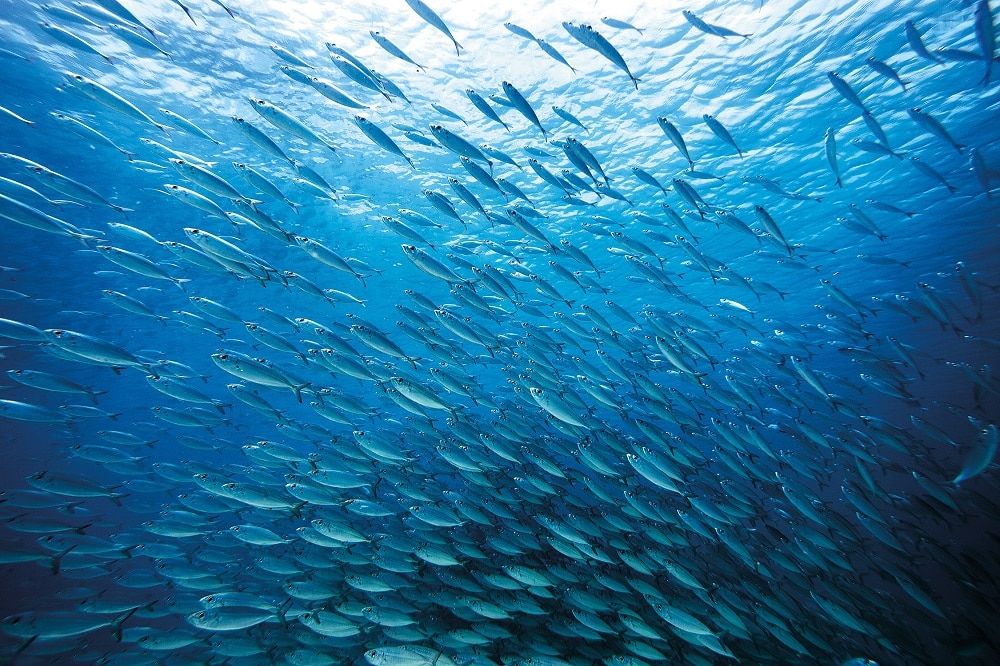
10. Patagonia and Partners Campaign for Ocean Conservation
After successfully campaigning for better conservation safeguards at Albania’s Vjosa River, Patagonia this week launched a new joint campaign on water protection. It is aiming at the need to protect Europe’s oceans from intensive fishing. The outdoor brand has partnered with NGOs including ClientEarth and the Environmental Justice Campaign to call on European policymakers to end bottom trawling in marine protected areas.
It describes the practice as akin to “bulldozing” ocean floors, contributing to the destruction of seabed ecosystems by indiscriminately catching all forms of marine life. The practice often sees sharks, rays, or turtles caught up with fish. In addition to directly campaigning with policymakers around the EU’s Nature Restoration Law and Ocean Action Plan, the initiative will showcase regenerative alternatives for ocean-based businesses. It is launching a series of eight short documentaries showcasing solutions including low-impact fishing, seagrass restoration, and seaweed farming.
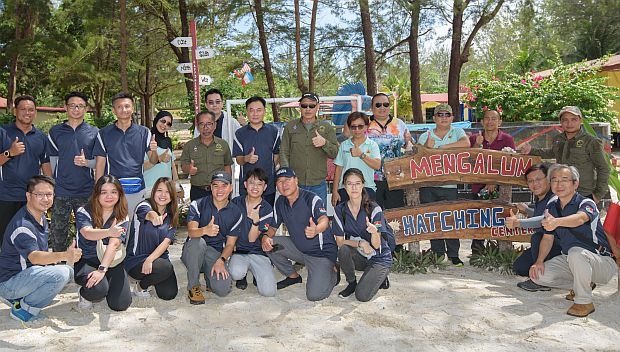
11. Conservation Efforts Underway to Protect Marine Life in Sabah’s Mengalum Island
Various conservation initiatives are being done on the marine ecosystem around Sabah’s Mengalum Island which is partially owned by Taiwanese real estate agency company Sinyi Group. It was described as a pristine island with abundant natural ecology and great tourism potential. However, the island suffered from significant human-induced damage for a long time. According to research, coral reefs were damaged from blast fishing and turtle eggs were being stolen, leading to a decline in sea life.
To prevent further damage to the natural environment, Sinyi Group is collaborating with other organizations like the Malaysian Maritime Enforcement Agency (MMEA) and the Borneo Marine Research Institute. The company also recently signed a Memorandum of Understanding on Sea Turtle Conservation with the Sabah Wildlife Department (SWD) and pledged to dedicate a majority of the land to nature conservation and reforestation projects.
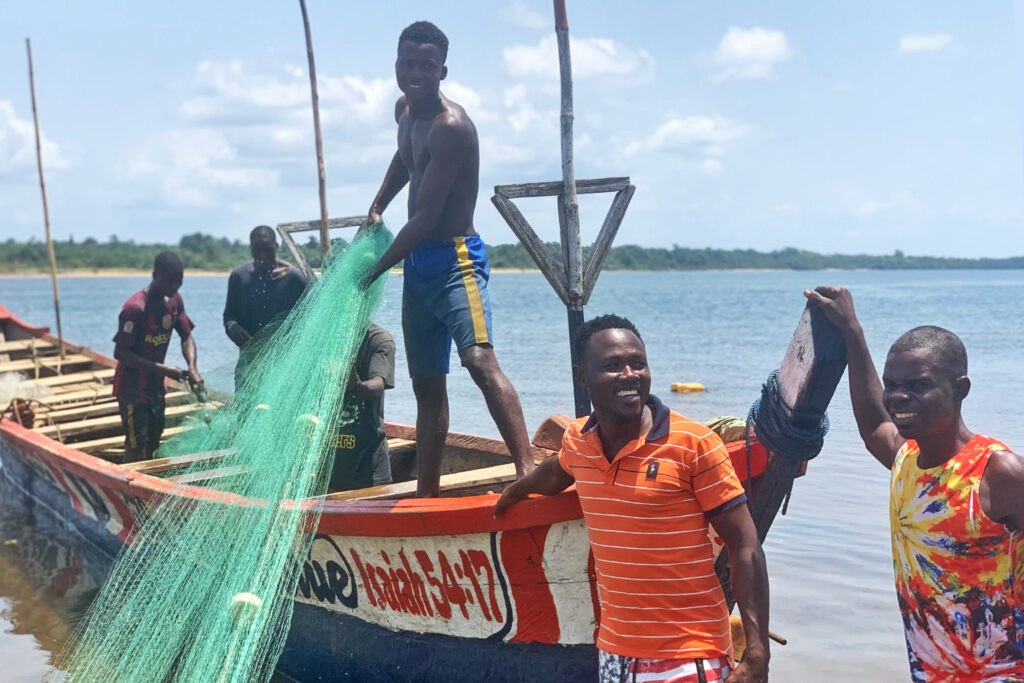
12. Can an App Help Liberian Artisanal Fishers Fight Illegal Fishing?
Small-scale fishers in Liberia are using a data collection platform to document cases of illegal activity at sea. Artisanal fishers have long borne the brunt of illegal, unreported, and unregulated (IUU) fishing, some of it occurring within an inshore exclusion zone that extends 6 nautical miles from shore.
Through the use of a mobile app called DASE, released by the NGO Environmental Justice Foundation, local fishers can geotag images and videos of incidents at sea and submit them to the National Fisheries and Aquaculture Authority for verification and possible investigation.
Though the app has not resulted in any prosecutions yet, fishers say it is having a deterrent effect on illegal activities. According to the Environmental Justice Foundation (EJF) website, some 33,000 people are employed in small-scale fisheries, which account for up to 10% of the country’s gross domestic product.
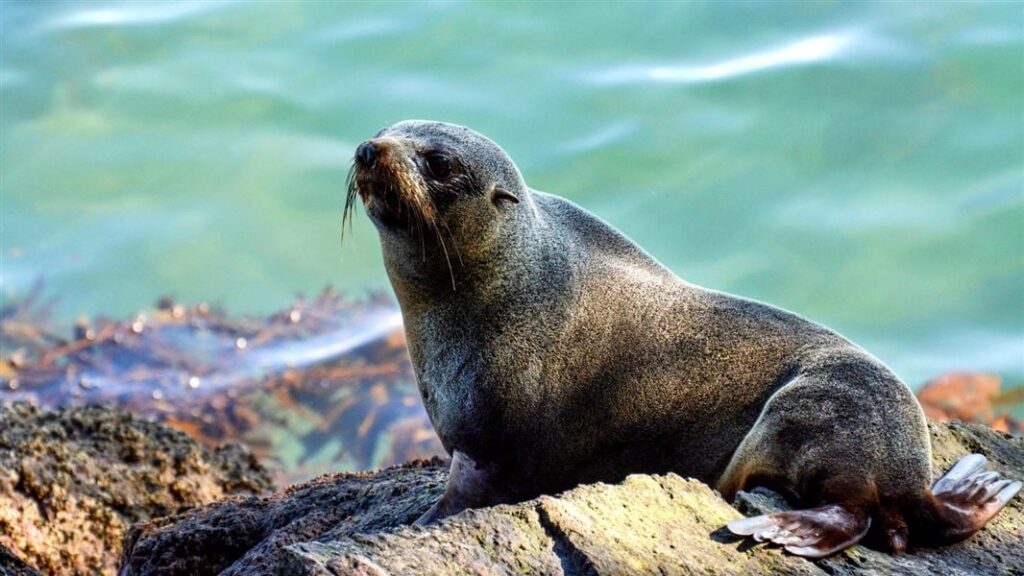
13. It’s the Season for Seals – Department of Conservation – New Zealand
The Department of Conservation is issuing its seasonal reminder to keep an eye out for fur seals around New Zealand’s coastlines and on coastal roads. Between May and September, young kekeno/seals and male seals of any age can be spotted as they leave their breeding colonies, explore, and rest.
This includes newly weaned pups finding their way in the world. Although kekeno are marine mammals, they spend much of their time on land resting and basking in the sun. They are most often found on rocky shores, although they are curious and exploratory by nature and are frequently spotted inland. One way for people to help keep kekeno safe during this season is to keep dogs under control. Keep a toy on hand to use as a distraction. Warn other beach users if you spot wildlife.
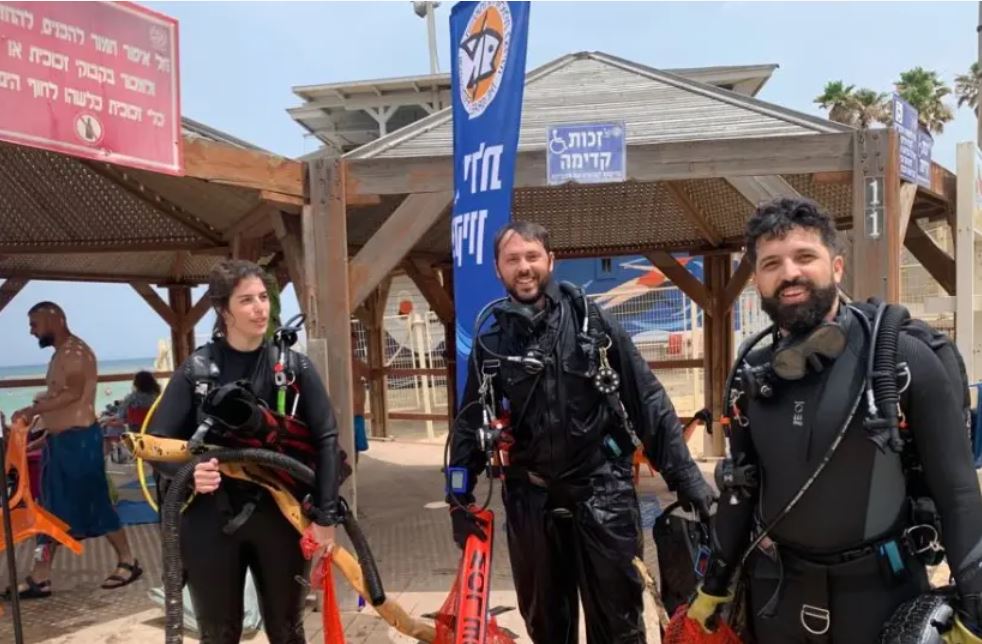
14. Israelis Pick up 120 Kg. Of Trash in Mediterranean Sea Clean-up Project
The Environmental Protection Ministry is leading underwater cleaning dives in the Mediterranean Sea and the Red Sea as part of the “Clean Beach” program throughout the month of June. The dives, coinciding with World Oceans Day on June 8, took place at Givat Aliya in Jaffa, on the beaches of Herzliya and Dor-Nashsholim beach with 55 divers collecting about 120 kg of waste, mostly made of plastic, disposable food wrappers, and drink cans.
The next dives are slated for June 16 and June 23-24. Environmental Protection Minister Idit Silman explained the program’s significance. “Every year, we support clean-up dives in the Mediterranean Sea and the Gulf of Eilat, to clean up the waste on the seabed and raise awareness for keeping the beaches clean, as part of the Clean Beach program,”. 2023 marks the 18th year the ministry has run the Clean Coast program.
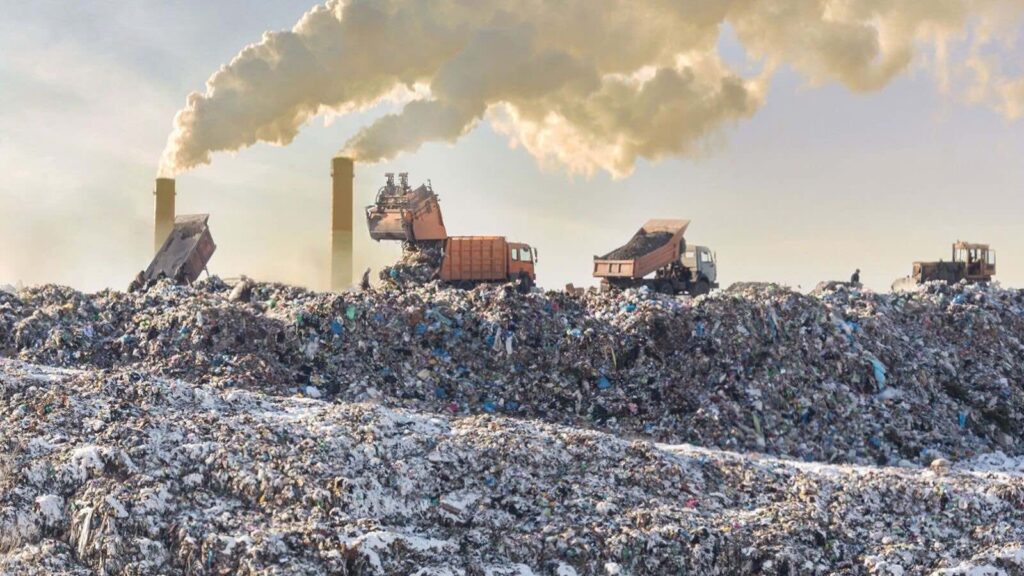
15. The Countdown to Zero Waste – A cascade of Victories Against Plastic Pollution In The Pacific Northwest- June Update
Our country has a waste problem. It’s time for new solutions and a renewed commitment to move toward zero waste. PIRG and Environment America’s advocates, organizers, and members are promoting ways to reduce what we consume, reuse what we can, and recycle the rest. Oregon and Washington reaffirmed their status as leaders in moving toward zero waste with the adoption of new laws this spring.
Oregon will phase out polystyrene foam food ware, packing peanuts, and coolers, and make providing reusable container options easier for restaurants. Washington will require bottle filling stations in new buildings with water fountains and that lodging establishments use bulk dispensers for toiletries such as shampoo, soap, and conditioner, phasing out unnecessary plastic waste from some single-use personal care items. Due to these types of efforts one-third of Americans live in a state that has banned some type of single-use plastic.
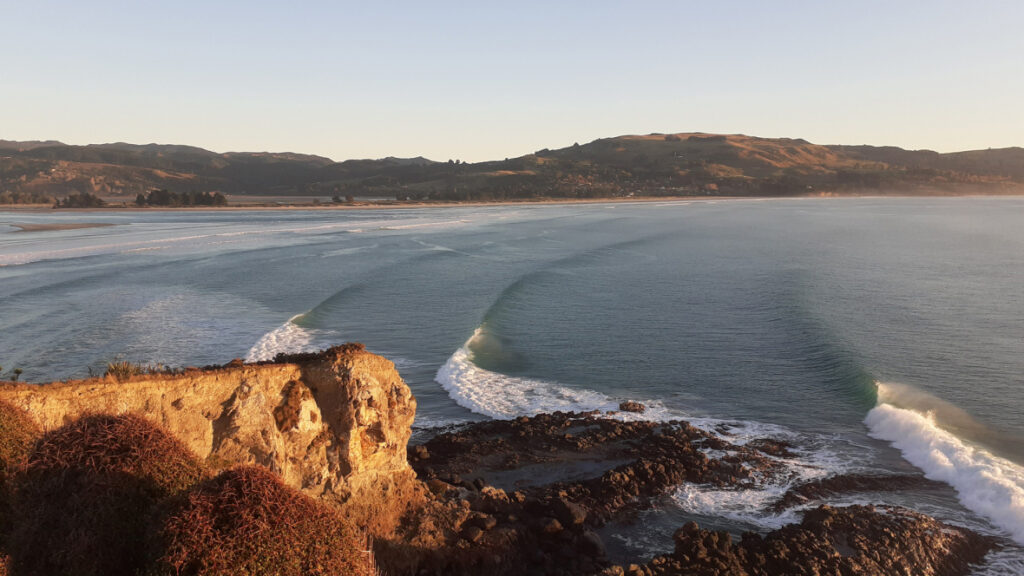
16. Identification of Significant Ecological Areas for the Otago Coastal Marine Area, New Zealand
Long-term protection of Otago’s coastal habitats took a step closer to reality after more than 100 marine Significant Ecological Areas (SEA) were identified as part of a research project led by NIWA. The research was produced for the Otago Regional Council to help inform the Regional Plan: Coast Review, which is planned to start in 2024/25.
The plan must include objectives, policies, and rules that govern what activities the councils will allow, control, or prohibit in the coastal environment. It can also be used to manage any effects from the use, development, or protection of the coastal marine area. Resource Management Act dictates that councils must protect indigenous biodiversity within their coastal marine areas, to 12 nautical miles. Councils must identify SEAs that meet defined ecological significance criteria based on the distribution of species, habitats, and ecological processes.
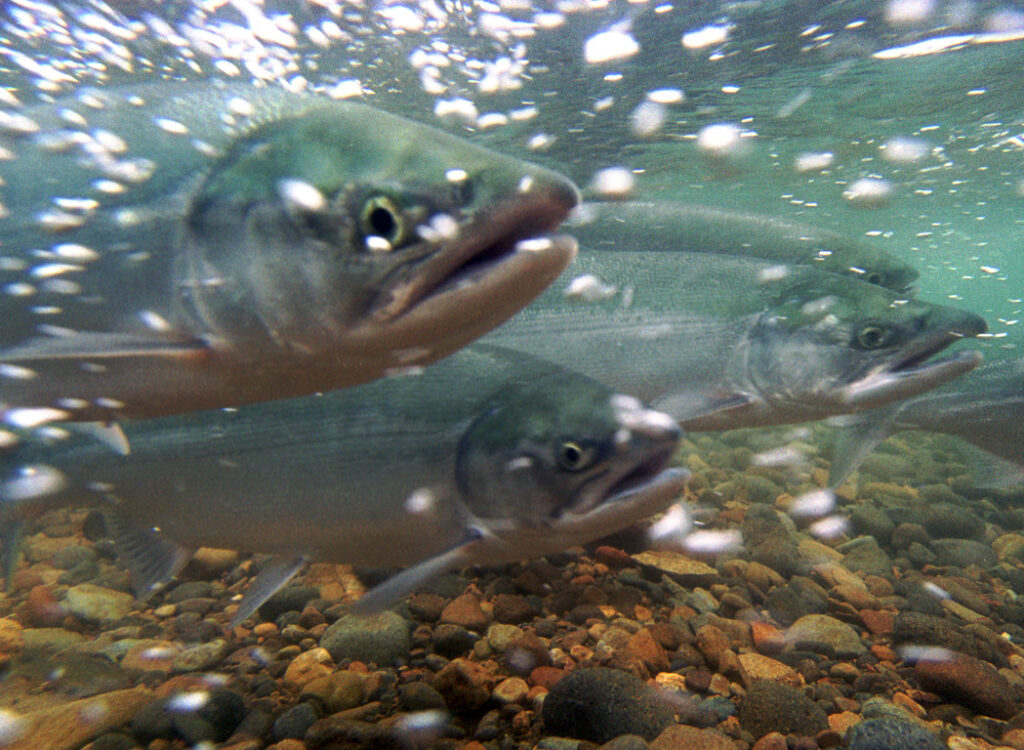
17. Alaska Salmon Task Force Charged With Developing Science Plan
Federal and state leaders have appointed 19 experts to a special task force responsible for creating a science plan to better understand Alaska’s salmon. Task force members must address sustainable management and a response to the recent crashes in the Yukon and Kuskokwim rivers. The group was chosen in accordance with the Alaska Salmon Research Task Force Act that was signed into law late last year.
The law calls for most members to be appointed by the U.S. Secretary of Commerce, in consultation with Alaska’s governor, and one to be appointed directly by the governor. The task force is responsible for producing a coordinated science plan within a year. It is also responsible for identifying knowledge gaps and research needs, setting up a work group to focus specifically on the Yukon and Kuskokwim rivers, and finding ways to support sustainable salmon management.
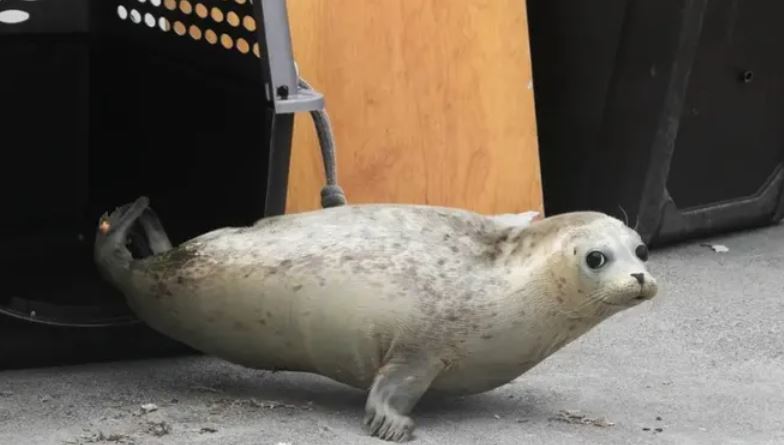
18. San Francisco Bay Area a Marine Mammal Harassment ‘Hot Spot’
The Marine Mammal Center, home to the world’s largest marine mammal hospital, released new data that showed more than 25 percent of the animals it rescued in 2022 were found to be in distress following negative interactions with humans and dogs. The center rescues animals along 600 miles of the northern and central California coastline.
The center said wildlife harassment was a contributing or direct factor in more than 150 cases of marine mammals that were rescued and admitted to its hospital last year. The center planned to use the 2022 data it compiled for a new campaign to educate the public on the dangers of human-wildlife interaction, with a special target toward beachgoers, tourists, and small businesses “in key interaction hot-spot areas.”
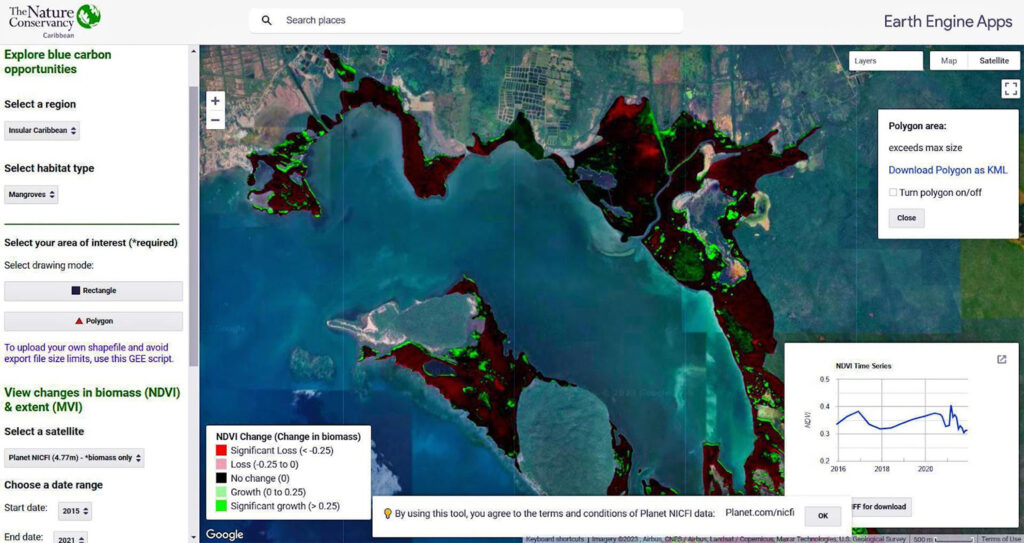
19. New Digital Tool Maps Blue Carbon Ecosystems in High Resolution
The Blue Carbon Explorer, a new digital tool combines satellite imagery, drone footage, and fieldwork to map mangroves and seagrass in the Caribbean, Papua New Guinea, and Indonesia. The tool aims to help scientists, conservationists, and governments gauge mangrove health and identify areas in need of restoration.
The tool’s launch comes at a time of growing global interest in blue carbon ecosystems — mangroves, seagrasses, and salt marshes — as potential nature-based solutions for climate change. Mangroves sequester carbon from the air and store it in the soil and roots; per hectare, they can store four times more carbon dioxide than terrestrial forests.
Seagrass meadows, store twice the amount of carbon dioxide per hectare as terrestrial forests. These ecosystems buffer coastal communities against flooding and sea level rise, provide livelihoods for them, and are critical habitats for a wide variety of species.
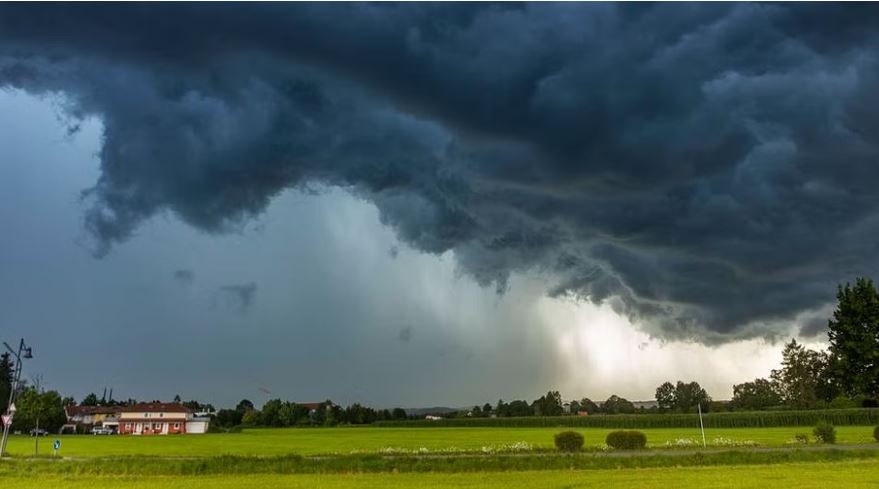
20. UG Students Will Have to Study Climate Change, Threats to Environment
The University Grants Commission (UGC) has recently instructed its affiliated universities and colleges to introduce a compulsory subject on environmental studies in all branches of undergraduate degrees. Students pursuing graduation will now have to study subjects like environmental education.
Under the guidelines released by the UGC, environmental education will include areas such as climate change, pollution, sanitation, waste management, conservation of biological diversity, sustainable development, forest and wildlife conservation, and management of biological resources and biodiversity. The UGC said that they have sent official guidelines in this regard to all the universities of the country through a notification. These guidelines state that environmental education should be included as a main subject in all undergraduate programmes.




